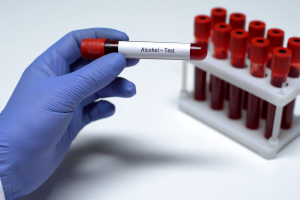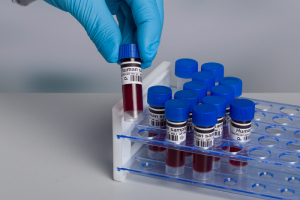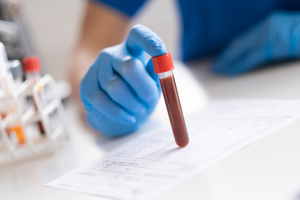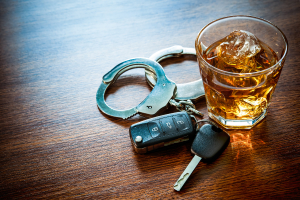
Driving and drinking are never a good combination. If law enforcement stops you and finds you a blood alcohol concentration (BAC) above the legal limit, you could face serious consequences.
If you are in California and are out for drinks with your friends, what should you keep in mind if you drive?
In California, the legal limit for BAC is .08%. If the BAC is .08% or higher, one can be charged with driving under the influence (DUI). Understanding blood alcohol levels and laws in California and having the common sense not to endanger yourself and others is vital to avoid DUI.
DUI is a serious offense in California. If convicted, you could face steep fines, jail time, and the loss of your driver's license. If authorities stop you from driving to take a breath test, it is important to know your rights. You have the right to refuse the test, but you could face automatic license suspension if you do so.
Contacting a qualified Los Angeles DUI lawyer as soon as possible is essential. An experienced attorney can help you navigate the complex legal system and fight for the best possible outcome in your case.

Driving under the influence (DUI) of alcohol or drugs is a serious crime in California. Charged with DUI, you could face jail time, fines, driver's license suspension, and other penalties.
Understanding the DUI laws in California is vital in this situation. A knowledgeable DUI attorney can explain the laws and help you fight the charges.
The Vehicle Code (VC) 23152(B) is the California statute prohibiting driving with a blood alcohol concentration of .08% or more. This offense is also called DUI per se or driving under the influence of alcohol.
A person violates this law when they drive a vehicle with a BAC of .08% or more. Authorities can determine the BAC via a blood test, urine test, or breathalyzer.
It is also illegal to drive with any amount of a drug in one's system if that drug impairs his ability to drive. This includes legal drugs like prescription medication and over-the-counter medication.
This California statute prohibits persons under 21 years old from driving with a blood alcohol concentration of .05% or more. This offense is commonly referred to as DUI under 21 with a high BAC.
Note that California has no "legal limit" for marijuana use. However, driving while impaired by marijuana is still illegal.
Code 23152(D) is another California statute prohibiting driving a commercial vehicle with a blood alcohol concentration of 0.04% or more. This law is stricter than the 0.08% standard that applies to other drivers, and commercial drivers need to be aware of this law. If you are a commercial driver charged with DUI, you should contact a Los Angeles criminal defense attorney as soon as possible.
This law is related to California statute 23152(D), which prohibits driving a passenger for hire vehicle while under alcohol influence. It includes ride-sharing services like Uber and Lyft. The legal limit for this offense is 0.04%, just like driving a commercial vehicle. You should contact a Los Angeles criminal defense attorney soon if you are charged with DUI while driving for a ride-sharing service.
This California statute prohibits persons under 21 years old from driving with a blood alcohol concentration of .01% or more. This offense is also referred to as DUI under 21, or zero tolerance for underage drinkers.
It also prohibits persons under 21 years old from refusing to take a breath or blood test when arrested for DUI. This offense is called "underage DUI refusal."
This California statute requires drivers 21 years of age and older, on DUI probation, to install an ignition interlock device (IID) in any vehicle they own or operate.
An IID is a breathalyzer for a car. It prevents a vehicle from starting if the driver's blood alcohol concentration exceeds a pre-set limit. The statute also requires persons on DUI probation to submit to alcohol testing. This violation of the law is a "DUI probation violation."

Police officers can estimate your blood alcohol concentration (BAC) in several ways. One standard method is called preliminary alcohol screening (PAS). This method involves using a handheld device to measure your BAC. Other methods include DUI breath, blood, and urine, as discussed below.
The drunk driving breath test is one of the most common ways for police officers to estimate blood alcohol content. The test is typically done with a handheld device, such as a portable breathalyzer.
The device works by measuring the amount of alcohol in your breath. It gives your blood alcohol concentration (BAC) estimate.
Several factors can affect the accuracy of DUI breath tests, including:

A DUI blood test is the most accurate way to measure blood alcohol content. The test is typically done at a hospital or medical facility and involves taking a blood sample and testing it for alcohol content.
However, many factors can affect the accuracy of a DUI blood test, including:
A DUI urine test is another way for police officers to estimate BAC. The test is done at a police station and involves taking a urine sample and testing it for alcohol content.
Many factors can affect the accuracy of a DUI urine test, including:
There are several ways to measure an individual's blood alcohol content (BAC), and each method has its advantages and disadvantages. The most common methods are breathalyzer, blood tests, and urine tests.
Breathalyzers are the most commonly used method of BAC measurement, as they are relatively easy to administer and fairly accurate. However, some factors can affect breathalyzers, including the individual's rate of metabolism, body temperature, and recent food or drink consumption. Blood tests are considered the most accurate method of BAC measurement, but they are also the most invasive and are not always practical. Urine tests are less accurate than breathalyzers or blood tests but are less invasive and administered more efficiently.

You will likely face misdemeanor charges if it's your first time being arrested for drunk driving. In California, the penalties for a misdemeanor DUI can include the following:
A first misdemeanor DUI offense can have the following penalties:
A second offense within ten years will result to:
A third drunk driving offense within ten years will result in even more serious penalties, including:

You may face severe penalties if you are arrested and charged with DUI in California. If this is your first offense, you will likely be charged with a misdemeanor. However, if you have prior drunk driving convictions or your blood alcohol content (BAC) is particularly high, you may be charged with a felony.
A fourth drunk driving offense within ten years is a felony and can result in the following penalties:
Being convicted of drunk driving and someone is injured, you will face felony charges. The penalties for this offense can include:

Being arrested for DUI can make you feel like the whole world is against you. You may be anxious about losing your job, driver's license, and freedom. The best way to fight against a DUI charge is to hire a skilled and experienced attorney to defend against these charges.
The attorney-client relationship is one of the most important aspects of your defense. Your attorney will be your advocate and will ensure to protect your rights throughout the legal process. A good attorney can investigate the circumstances of your arrest and gather evidence to defend you in court.
Do not try to fight the charges on your own. The Hurwitz Law Group can help. Our experienced criminal defense attorneys have successfully defended clients against DUI charges. Contact us at (323)-287-9849 to schedule a free consultation. We will review the facts of your case and advise you of your legal options. Let us fight for you.
Search
Categories